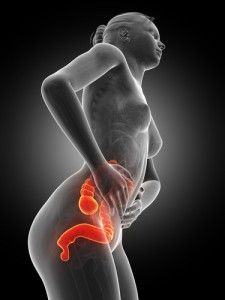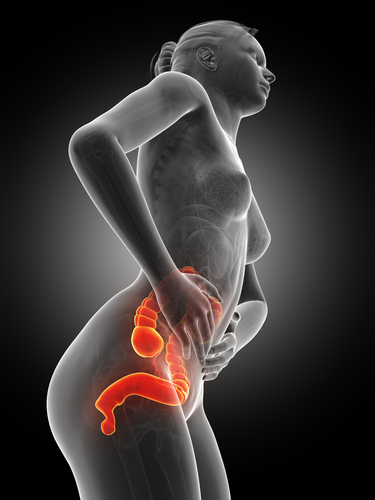 Researchers continue to study the effect that inflammatory bowel disease has on increasing a patient’s risk of developing colorectal cancer (CRC). Recently, IBD News Today‘s Dr. Ana De Barros reported on the results of an autophagy induction study in 40 unicellular parasitic species that is helping to identify novel therapeutic targets in patients suffering from colon cancer or inflammatory bowel disease (IBD). Now, a new study published in the August issue of Clinical Gastroenterology and Hepatology is outlining new data that suggests certain elevated proteins found in IBD patients contribute to a higher rate of colorectal cancer diagnoses.
Researchers continue to study the effect that inflammatory bowel disease has on increasing a patient’s risk of developing colorectal cancer (CRC). Recently, IBD News Today‘s Dr. Ana De Barros reported on the results of an autophagy induction study in 40 unicellular parasitic species that is helping to identify novel therapeutic targets in patients suffering from colon cancer or inflammatory bowel disease (IBD). Now, a new study published in the August issue of Clinical Gastroenterology and Hepatology is outlining new data that suggests certain elevated proteins found in IBD patients contribute to a higher rate of colorectal cancer diagnoses.
The study, entitled, “Serum Inflammatory Markers and Risk of Colorectal Cancer in Patients With Inflammatory Bowel Diseases,” notes that the fact that IBD patients are at higher risk of developing colorectal cancer is not a new insight, as inflammation, which is directly associated with IBD, is now recognized as a major risk factor in the development of cancer. However, the methods used to correlate IBD and colorectal cancer diagnoses in the past have centered on the use of histologic severity — no researcher has specifically sought to process data based on the prevalence of C-reactive protein (CRP) or the elevation of an erythrocyte sedimentation rate (ESR) in an IBD study group to see how colorectal cancer diagnoses relate to these factors.
The design of the study, which was led by Ashwin N. Ananthakrishnanemail, an assistant professor of medicine at Massachusetts General Hospital, and also involved researchers Su–Chun Cheng, Tianxi Cai, Andrew Cagan, Vivian S. Gainer, Peter Szolovits, Stanley Y. Shaw, Susanne Churchill, Elizabeth W. Karlson, Shawn N. Murphy, Isaac Kohane, Katherine P. Liao, was to work with a multi-institutional validated IBD cohort to track CRP and ESR in patients, and connect those findings with IBD patients who would eventually develop colorectal cancer. In order to accomplish this, the researchers identified participants in the study who had least one measured CRP or ESR value. From there, all participants were organized based on the severity of IBD inflammation as measured by their median CRP or ESR values. After this was established, the researchers then investigated subsequent colorectal cancer diagnoses among the cohort, utilizing a logistic regression methodology that allowed for adjustments in the event of potential confounders, which ultimately enabled the study to draw measurable associations between elevated CRP or ESR in IBD patients and their risk of developing CRC.
The results were conclusive. Through the methodology used above, the study ended up identifying 3,145 patients who exhibited at least one CRP value as defined by the study, which were organized in a CRP cohort, and an additional 4,008 patients who had at least one ESR value, who were collected into an ESR cohort. Among these two cohorts, 33 of those grouped into the CRP cohort, and another 102 patients who were part of the ESR cohort, were found to have developed CRC after researchers conducted a 5-year median follow-up, with those studied having an average age of 55 years. The study reported that after conducting a multivariate analysis, a significant risk increase for developing colorectal cancer was observed in both the group with CRP elevation (Ptrend = .017; odds ratio for quartile 4 vs quartile 1, 2.72; 95% confidence interval, 0.95–7.76), and the ESR group (odds ratio, 2.06; 95% confidence interval, 1.14–3.74) (Ptrend = .007).
The study results are significant to patients with IBD since it puts into better focus the contributing factors to how IBD and inflammation play a role in elevating the chance for developing colorectal cancer. With findings such as these, drug developers have access to deeper insights into how to develop next-generation therapies that can curtail the contributing factors that can escalate IBD into CRC.

